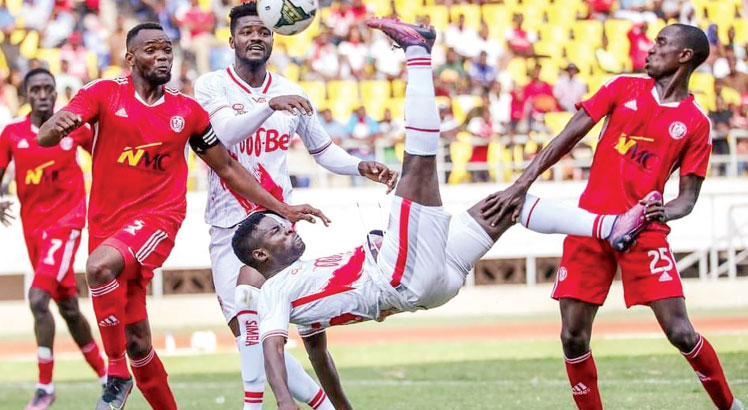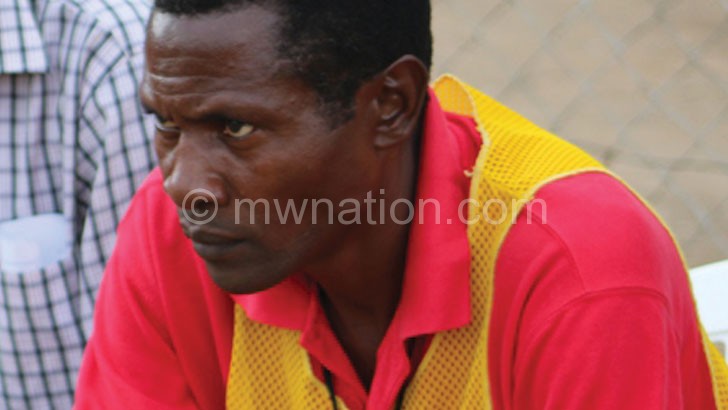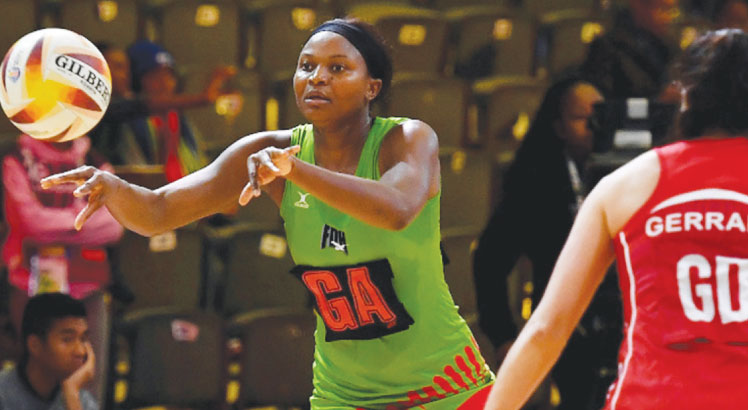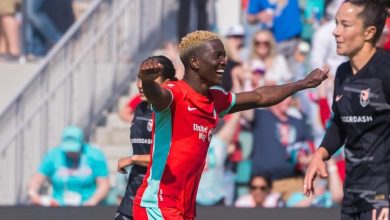We get peanuts—Flames
 Malawi national football team (the Flames) players are fighting two battles—to win on the pitch and for a better welfare—and they think the latter is distracting their focus on the field of play.
Malawi national football team (the Flames) players are fighting two battles—to win on the pitch and for a better welfare—and they think the latter is distracting their focus on the field of play.
Flames, one of the lowest paid national teams in the region, say it is more than an uphill task to win against sides that are both technically good and highly motivated financially.
The concerns come barely two weeks after the Flames crashed out of the 2013 Africa Cup of Nations qualification at the hands of Ghana on a 0-3 aggregate.
The Black Stars were promised a $10 000 [about K3.2 million] reward each for qualification. This was 32 times Flames’ incentive of K100 000 [$300].
One of the Flames senior players said in an interview on Wednesday that they lack motivation to give out something extra for the cause of their country.
“Football is a game of egos… What we get is peanuts compared to other teams in the region and indeed on the continent and it contributes to our level of performance,†said the player.
Perhaps Ghana could be too far for comparison. Neighbours Zimbabwe promised their team, the Warriors, $10 400 [about K3.3 million each], which was about 35 times more than Malawi’s offer.
On top of the monetary pledge, the Zimbabwe government promised to give each player a residential stand [a plot] in Harare’s leafy northern suburbs.
On the other hand, reigning African champions Zambia’s Chipolopolo were offered $5 000 each [about K1.6 million].
The player also claimed that despite asking the Football Association of Malawi (FAM) to consider reviewing their game bonus and allowances even before devaluation, nothing has materialised.
“We took up the issue with FAM through captain Peter Mponda long before he got injured. The association, through the president, gave an assurance that they would take up the issue with Sports Council.
“We tried to follow up recently through the team manager, but nothing has come up,†he said.
The Flames get K30 000 [less than $100] each as a game bonus for a win and half the amount for a draw be it a competitive or friendly game. They also get K2 000 daily camping allowance each.
To the contrary, Chipolopolo get $3 000 [about K960 000] each as a game bonus for a win whereas Warriors receive $1 500 [about K480 000] each as a game bonus for a win.
Allowances review
FAM president Walter Nyamilandu concurred with the players’ concerns, saying they have written and spoken to Sports Council to consider reviewing the allowances.
“The issue of player incentives is paramount if we want to get the best from them,†said Nyamilandu.
On why FAM is not able to find a sponsor for the Flames from the corporate world to supplement government funding as it is the case in other countries such as Zambia and South Africa, Nyamilandu said: “Getting a sponsor for the national team has proven to be difficult because it is deemed as a national asset; hence, the political association that goes with it.
“We have approached several potential sponsors, but the feedback is that they do not see how they would be in full control of the national team.â€
Nyamilandu admitted that they envy other countries that have abundant resources and are failing to use them to their advantage.
Renowned marketer and football enthusiast Wilkins Mijiga, while agreeing that the incentives offered to the Flames are pathetic, said everything is done in context.
“Let us be honest, our economy is small. For instance, a marketer in South Africa gets 10 times more than what I get, yet we have same qualifications and job descriptions. So, in essence, it cannot be practical to compare incentives with that of other countries because this country has limited means,†said Mijiga.
He also cited local players’ exposure as another big challenge.
“Our clubs hardly take part in international continental tournaments and that is why even our top players end up playing for second-tier South African league.
“All the same, I sympathise with our players’ situation in terms of incentives. We need to compensate them, but that should be done in context. Let us accept that we can do better in terms of preparations and incentives.â€
On lack of corporate support to supplement government funding, Mijiga said: “Corporate companies will come in where there is potential success or success. The performance of the national soccer team is a reflection of the challenges we are facing as a country.â€
He also said Flames’ failure is not only the failure of FAM or government, but of Malawi as a country.
Youth and Sports Minister Enoch Chihana admitted the Flames get a raw deal.
“I am aware that our boys are not motivated. They read newspapers and the Internet on how national team players are motivated elsewhere.
“It is an issue that I am looking into and I want to see to it that their welfare is improved including their allowances. We are also discussing with FAM to see how we can get a corporate partner to sponsor the national team,†said Chihana.





